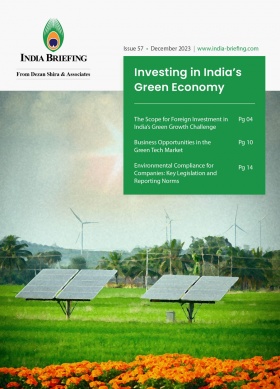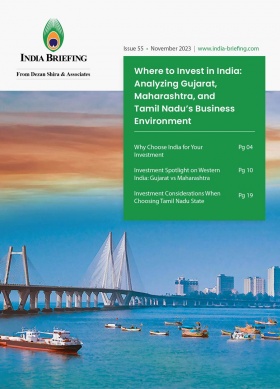Tax Rules in India in Effect from April 1, 2024
While the Finance Act 2024 makes some amendments to income-tax provisions, such as the treatment of agricultural income, the country’s finance ministry maintains there will be no changes to the direct tax regime in India for FY 2024–25, i.e., from April 1, 2024.
Amendments to indirect taxation under the Finance Act 2024, which generally puts into implementation Interim Budget 2024 provisions, include updates to the Central Goods and Services Tax Act, 2017 concerning Input Service Distributors and penalties for the failure to register certain machines used in the manufacture of goods under special procedures.
India’s finance ministry has clarified that there will be no additional changes to the income tax regime (new and old) in the new financial year starting April 1, 2024 (FY 25).
In the Interim Budget for 2024-25, announced on February 1 this year, India’s finance minister Nirmala Sitharaman made no recommendations for changes to the tax structure, either direct or indirect. As such, the income tax slabs set in the Union Budget for 2023–24 continue to apply to both the old and new regimes.
|
New Tax Regime 115BAC (1A) introduced for FY 2023-24 (INR) |
Existing Old Regime (INR) |
||
|
0-0.3 million |
0% |
0-0.25 million |
0% |
|
0.3-0.6 million |
5% |
0.25-0.5 million |
5% |
|
0.6-0.9 million |
10% |
0.5-1 million |
20% |
|
0.9-1.2 million |
15% |
Above 1 million |
30% |
|
1.2-1.5 million |
20% |
||
|
Above 1.5 million |
30% |
||
- The new tax regime is applicable to individuals other than companies and firms, as a default regime from FY 2023-24, and the assessment year corresponding to this – AY 2024-25.
- Under the new tax regime, the tax rates are significantly lower, though the benefit of various exemptions and deductions (other than the standard deduction of INR 50,000 (approx. US$699.04) from salary and INR 15,000 (approx. US$179.86) from family pension) is not available, as in the old regime.
- While the new tax regime is the default tax regime, taxpayers are free to select the tax system that best suits their needs.
- The option of opting out of the new tax regime is available until the filing of the return for AY 2024-25. Eligible persons without any business income will have the option to choose the regime for each financial year. Thus, they can choose a new tax regime in one financial year and an old tax regime in another, and vice versa.
Roundup of key amendments introduced in the Finance Act, 2024
Prominent changes in the Finance Act, 2024, which came into effect February 15, include updates to the Central Goods and Services Tax Act, 2017 (CGST Act) regarding input service distributors (ISD), some adjustments to income-tax provisions, and penalties for failing to register specific machinery used in manufacturing under special procedures. The Finance Act 2024 emphasizes compliance, clarifies tax rates, and enforces laws to streamline tax administration and better facilitate corporate transactions.
It is now mandatory to use the input service distributor system in order to distribute input tax credits (ITC). This condition involves procurement of common services for branches or distinct persons so they can receive ITC, which could then be allocated to different branches or companies under the same permanent account number (PAN). This makes it easier to allocate credits for services like authorized consulting, security, or protection that are available all at once but used in different subdivisions.
An input service distributor or ISD is a taxpayer under the Goods and Services Tax (GST) regime who is responsible for distributing the GST input tax credits linked to its GSTIN among its units or branches with distinct GSTINs but registered under the same PAN.
Another significant change in the Finance Act 2024 pertains to the inclusion of Reverse Charge Mechanism (RCM) invoices in clause (61) of Section 2, which was not the case previously. This change mandates the inclusion of RCM invoices within the ISD mechanism for the distribution of ITC from the Head Office to branches exclusively.
Following this amendment, any tax paid by an ISD under RCM can only be distributed to branches under ISD rules, with no other methods like cross charges being allowed. This regulatory update is intended to establish consistency in ISD-related compliance across all taxpayers.
The Finance Act 2024 has also introduced a new section, 122A, that imposes penalties for the failure to register certain machines used in the manufacture of goods. This special procedure, notified under Section 148 of the CGST Act, 2017 specifically applies to goods like tobacco, pan-masala, and similar items.
READ: India’s 50th GST Council Meeting July 2023: Key Outcomes for Businesses
What is the Finance Act, 2024?
The Finance Act, 2024 intends to change certain enactments, give specific assistance to taxpayers, and maintain the current income tax rates for FY’25. The Act offers a thorough road map for the government’s intended distribution of financial resources and simplifies the nation’s tax laws. These modifications pertain to a number of current laws that control various taxes in the nation, including the Income Tax Law, the Stamp Act, and the Money Laundering Law. The Act also passes into law key provisions introduced in the Interim Budget 2024.
INDIRECT TAXES
Central Goods and Services Tax (CGST)
Amendment of section 2.
- In the Central Goods and Services Tax Act, 2017 (hereinafter referred to as the Central Goods and Services Tax Act), in section 2, for clause (61), the following clause shall be substituted, namely:–
‘(61) “Input Service Distributor” means an office of the supplier of goods or services or both which receives tax invoices towards the receipt of input services, including invoices in respect of services liable to tax under sub-section (3) or sub-section (4) of section 9, for or on behalf of distinct persons referred to in section 25, and liable to distribute the input tax credit in respect of such invoices in the manner provided in section 20;’.
Amendment in the Manner of distribution of ITC by the ISD (Section 20 of the CGST Act)
“20 (1) Any office of the supplier of goods or services or both which receives tax invoices towards the receipt of input services, including invoices in respect of services liable to tax under sub-section (3) or sub-section (4) of section 9, for or on behalf of distinct persons referred to in section 25, shall be required to be registered as Input Service Distributor under clause (viii) of section 24 and shall distribute the input tax credit in respect of such invoices.
(2) The Input Service Distributor shall distribute the credit of central tax or integrated tax charged on invoices received by him, including the credit of central or integrated tax in respect of services subject to levy of tax under sub-section (3) or sub-section (4) of section 9 paid by a distinct person registered in the same State as the said Input Service Distributor, in such manner, within such time and subject to such restrictions and conditions as may be prescribed.
(3) The credit of central tax shall be distributed as central tax or integrated tax and integrated tax as Integrated tax or central tax, by way of issue of a document containing the amount of input tax credit, in such manner as may be prescribed.”
Section 122A: Penalties and Registration Procedures for Specified Machines
Section 122A has been introduced in relation to penalty for failure to register certain specified machines used to manufacture specified goods as notified under section 148 of the CGST Act, 2017.
The text of proposed new section 122A provides as under:
“122A. (1) Notwithstanding anything contained in this Act, where any person, who is engaged in the manufacture of goods in respect of which any special procedure relating to registration of machines has been notified under section 148, acts in contravention of the said special procedure, he shall, in addition to any penalty that is paid or is payable by him under Chapter XV or any other provisions of this Chapter, be liable to pay a penalty equal to an amount of INR 100,000 (US$0.5 million) for every machine not so registered
(2) In addition to the penalty under sub-section (1), every machine not so registered shall be liable for seizure and confiscation:
Provided that such machine shall not be confiscated where–
- the penalty so imposed is paid, and
- the registration of such machine is made in accordance with the special procedure within three days of the receipt of communication of the order of penalty.”
What is Section 148?
India’s CGST Act, 2017’s Section 148 details special procedures for particular processes. Therefore, the government may notify certain classes of registered persons and the special procedures to be followed by such persons, including those with regard to registration, furnishing of a return, payment of tax, and administration of such persons, based on the Council’s recommendations and subject to any conditions and safeguards that may be prescribed.
|
Section |
Particulars |
Existing Norms |
Amendment |
|
10(23FE) |
Exemption to the wholly owned subsidiary of ADIA or Sovereign wealth fund or pension fund |
Exemption for specified investment between 01/04/2020 to 31/03/2024 |
Exemption for specified investment between 01/04/2020 to 31/03/2025 |
|
80-IAC |
Deduction for profits and gains of eligible start-ups |
Entity should be incorporated on or before 31/03/2024 |
Entity may be incorporated on or before 31/03/2025 |
|
10(4D) |
Exemption to specified fund |
Commencement of operations on or before 31/03/2024 |
Commencement of operations on or before 31/03/2025 |
|
10(4F) |
Exemption to royalty or interest income received by a non-resident from lease of aircraft or a ship |
||
|
80LA |
Deduction to Off-shore Banking Units and IFSC |
Summary
The revised ISD provisions in the Finance Act of 2024 aim to bring structure and clarity to the allocation of ITC for businesses with multiple GSTINs. Businesses that align their tax and accounting procedures with these updates are expected to benefit from improved compliance and efficient management of input tax credits.
This article was originally published on February 21, 2024. It was last updated on April 1, 2024.
About Us
India Briefing is produced by Dezan Shira & Associates. The firm assists foreign investors throughout Asia from offices across the world, including in Delhi and Mumbai. Readers may write to india@dezshira.com for more support on doing business in India.
We also maintain offices or have alliance partners assisting foreign investors in Indonesia, Singapore, Vietnam, Philippines, Malaysia, Thailand, Bangladesh, Italy, Germany, and the United States.
- Previous Article Outlook for the Flexible Workspace Sector in India
- Next Article India-Spain DTAA Notification: Lowered Tax Rates and Key Provisions








